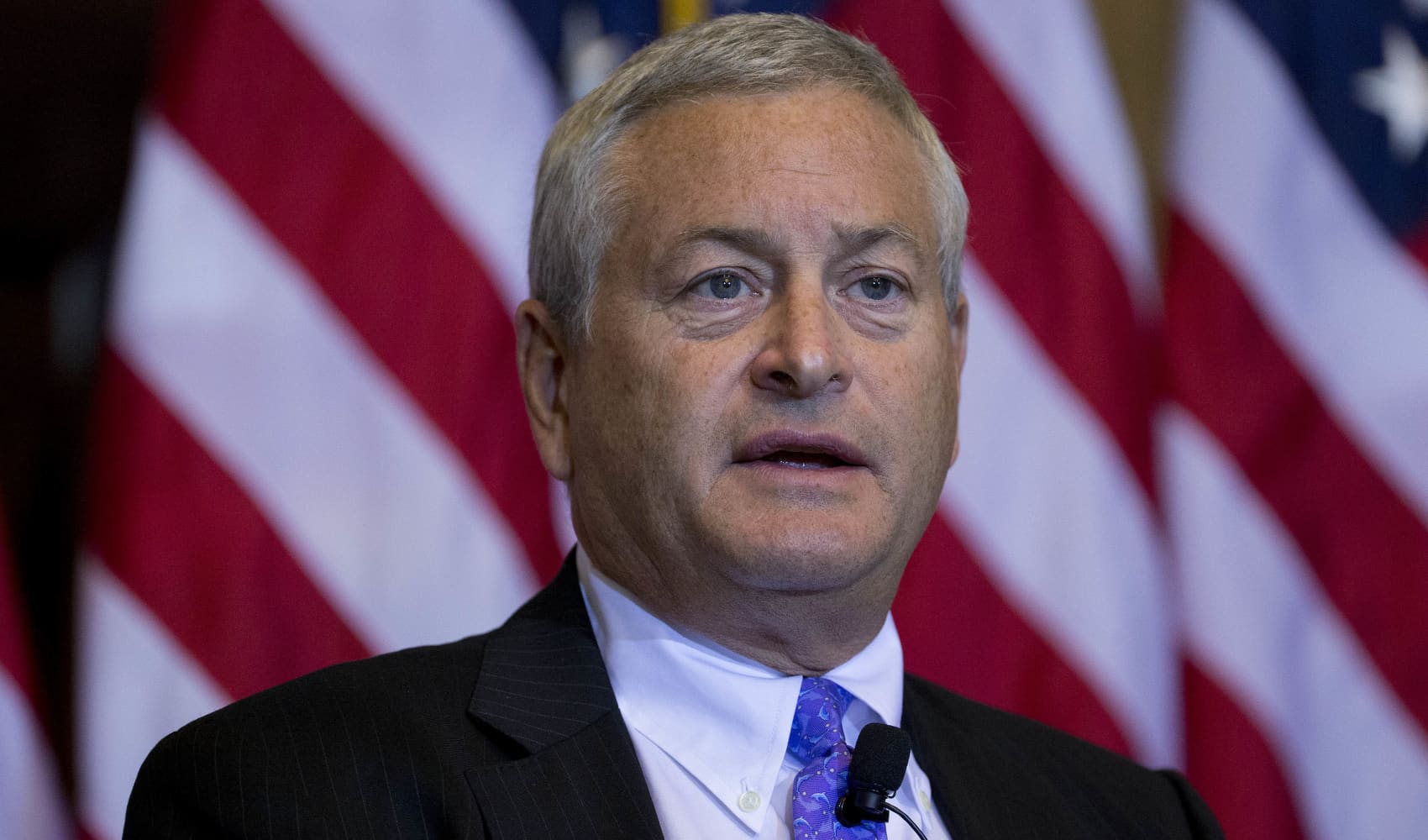
- The White House defended its decision not to extend the nearly yearlong federal eviction moratorium on Monday, two days after the ban expired July 31.
- "The CDC director and her team have been unable to find legal authority" to extend the moratorium, said economist Gene Sperling, who leads the White House effort to distribute Covid relief funds.
- The White House and Congress are engaged in a game of hot potato over who bears responsibility for extending the moratorium.
WASHINGTON -- A top White House aide defended President Joe Biden's decision not to extend the federal Covid-19 eviction moratorium on Monday, two days after nearly a yearlong nationwide halt on rental evictions expired.
"Unfortunately, the Supreme Court declared on June 29 that the [Centers for Disease Control and Prevention] could not grant such an extension without clear and specific congressional authorization," said economist Gene Sperling, who leads the White House effort to distribute Covid relief funds.
That authorization has not been granted, he said, and as a result "the CDC director and her team have been unable to find legal authority" to extend the moratorium.
We're making it easier for you to find stories that matter with our new newsletter — The 4Front. Sign up here and get news that is important for you to your inbox.
Sperling then outlined new measures Biden had authorized, which largely consisted of directing agencies to keep trying to prevent evictions.
The White House's argument that it lacks the legal authority to extend the eviction ban has not gone over well with the progressive wing of the Democratic party, which has been pressuring both Biden and House Speaker Nancy Pelosi, D-Calif., for weeks to extend the moratorium by any means necessary.
"This court order came down on the White House a month ago, and the White House waited until the day before the House adjourned to release a statement asking Congress to extend the moratorium," progressive Democratic Rep. Alexandria Ocasio-Cortez, N.Y. said Sunday on CNN.
Money Report
It's more complicated than that, however. The White House has spent the past few weeks trying to find ways around the high court's directive, while at the same time working to improve sluggish federal and state rental assistance programs that have been bogged down by red tape.
Late last week, it became clear that there was no legal authority under which the CDC could extend the ban, and the White House announced that Biden would let it lapse.
"President Biden would have strongly supported a decision by the CDC to further extend this eviction moratorium," the White House said in a statement last Thursday. "Unfortunately, the Supreme Court has made clear that this option is no longer available."
Biden then called on "Congress to extend the eviction moratorium to protect such vulnerable renters and their families without delay."
Biden's statement caught some Democrats by surprise, and with the House scheduled to adjourn for almost two months of recess the following day, party leaders scrambled to determine what steps they could take.
But it quickly became clear that Pelosi lacked the votes within her own caucus to extend the ban.
This was in part because Democratic House members knew that even if they voted to pass an extension, it would be DOA in the Senate, where Democrats hold just a one-vote majority. Republicans are universally opposed to extending the ban.
Over the weekend, Pelosi and Democratic leaders tossed the ball back into Biden's court.
"Action is needed, and it must come from the Administration," Pelosi said in a statement signed by Majority Leader Steny Hoyer, D-Md., Whip James Clyburn, D-S.C. and Assistant Speaker Katherine Clark, D-Mass.
At the White House briefing on Monday, Sperling said that slightly fewer than 2 million renters are under imminent threat of eviction.
But that estimate is significantly lower than the roughly 3.6 million Americans in early July who said they faced eviction in the next two months, according to the U.S. Census Bureau's Household Pulse Survey.
Sperling also noted that several states have instituted their own eviction moratoriums that will persist despite the end of the federal one.
He pressed states to use the $45 billion in Covid rental relief funds authorized by Congress this spring, of which only about $3 billion has been used so far.
"If states and local governments rise to this great resources that this Congress wisely gave to them, there is every reason to believe that they could have a substantial effect in mitigating these evictions," he said.
The Biden administration will not give up searching for ways to help renters, he added. "We're going to look for every bit of authority, or persuasion, or guidance that we can make."






